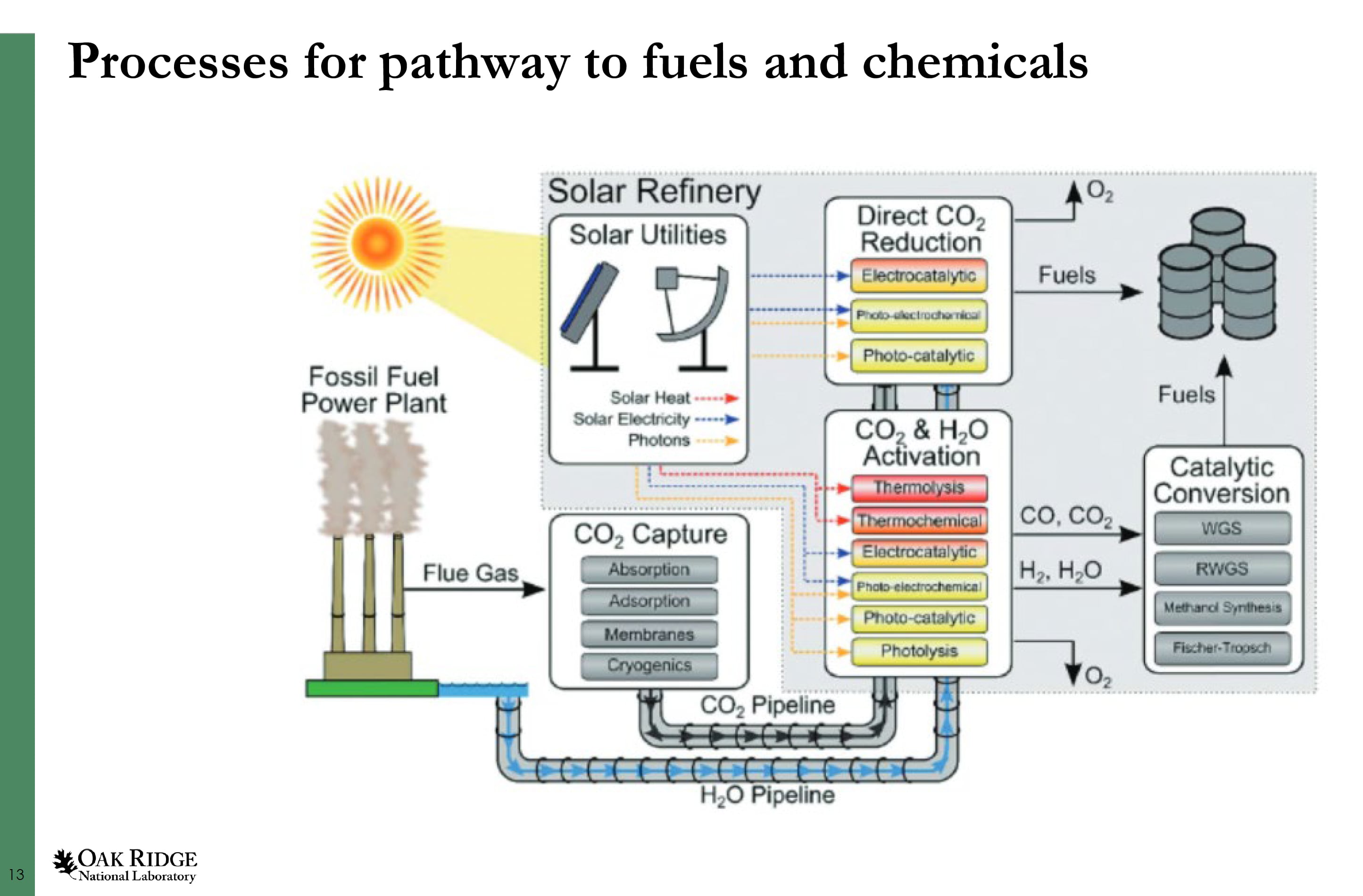
Michelle K. Kidder, Ph.D
Senior Research and Development Staff
Program Manager for ORNL’s DOE-Fossil Energy and Carbon Management
Oak Ridge National Laboratory
Monday, January 8, 2024
Energy generated from fossil fuels dominate the global use portfolio which now has reached an all-time high emission of approximately 40 GtCO2.
Undoubtedly this has had consequential impacts on our climate and environment, and sadly emissions are expected to rise. This has brought the urgent need to remove carbon from the atmosphere and from point sources, to reverse the rising atmospheric CO2 concentrations with effective carbon negative technologies as well as look to alternatives for energy, fuels and chemical resources.
Many strategies to enhance product selectivity from each feedstock is met with challenges with standalone materials and lack the ability to undergo process implementation and infrastructure needs. The dilemma of capture or conversion to products from carbon dioxide requires multi-decision criteria, including location, cost analysis, and environmental impact for short- and long-term needs.
Dr. Michelle Kidder is a Senior Research Staff Scientist, and also serves as the ORNL Program Manager for Fossil Energy Carbon Management in Utilization, and Scientific Lead for Net Zero Carbon strategies in the Energy Science and Technology Directorate at Oak Ridge National Laboratory (ORNL).
Her research focuses on novel material development and processes for alternative energy production from renewable energy resources. Here, she works to establish new approaches that elucidate underlying reaction mechanisms to further design and control material properties for optimal performance and scale-up. Her leading efforts have helped to describe the impacts of complex interfacial chemistries in carbon capture, and thermal and catalytic conversions of small molecules such as carbon dioxide, up to larger molecules found in biomass and lignin, to help improve technologies and accelerate the deployment of sustainable chemicals and fuels.
Dr. Kidder has over 140 publications, a book and 8 patents. She has served as Chair of the National American Chemical Society Energy and Fuels Division and in 2018 was named an American Chemical Society Fellow. In 2019 she was awarded the U.S. Clean Energy Education & Empowerment (C3E) in Research; 2022 was awarded both the UT Battelle Directors Award for Individual Scientific Achievement; 2022 UT Battelle Award for Mentorship in Research, and 2023 the National ACS Energy and Fuels Mid-Career Research Award.
She received her BS in Chemistry from the State University of New York at Brockport and her PhD in Physical Organic Chemistry from South Dakota State University.
 Tap this picture to view all of Dr. Kidder’s presentation slides.
Tap this picture to view all of Dr. Kidder’s presentation slides.
For more information on TSK and its meetings, please email TSK secretary, This email address is being protected from spambots. You need JavaScript enabled to view it. or call him at 865-679-9854.
